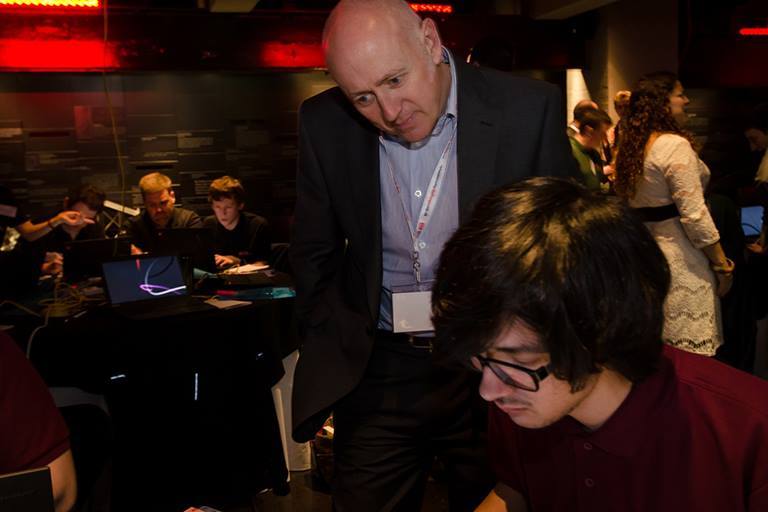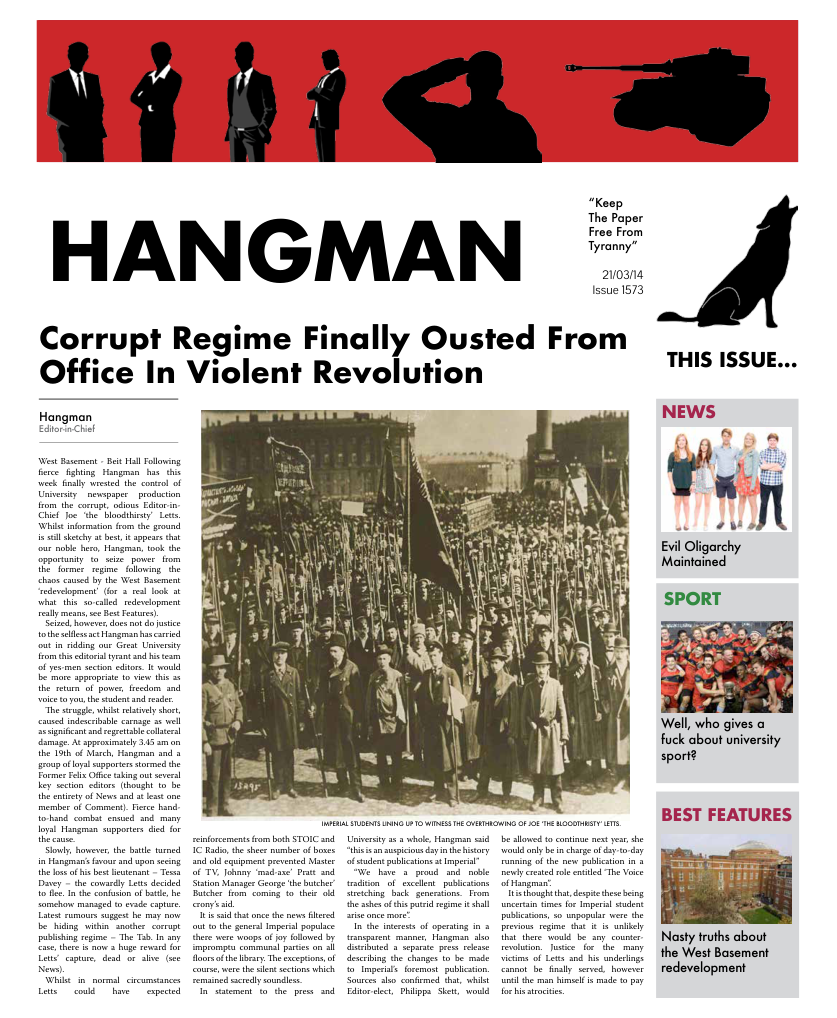Imperial Student Success in Cyber Security Challenge

A first year Imperial computing student has taken the second place prize at this year’s Cyber Security Challenge. Luke Granger-Brown was one of 42 finalists taking part in the final round of the competition – the Cyber Security Masterclass, this year taking place in the old Cabinet War Rooms. The co
A first year Imperial computing student has taken the second place prize at this year’s Cyber Security Challenge. Luke Granger-Brown was one of 42 finalists taking part in the final round of the competition – the Cyber Security Masterclass, this year taking place in the old Cabinet War Rooms. The competition was founded in 2010 as a collaboration between the UK government and several prominent companies, including the defence contractor QinetiQ. The competition is open primarily to amateurs and aims to encourage more people to develop the skills necessary to join the computer security industry in the face of increasing threats to our computer networks.
Speaking to Felix Luke expressed his belief that “cyber-security is very important – computing is an unavoidable part of our everyday lives now, and it’s down to everyone to play their part in keeping data secure”. However, the general public remains widely ignorant of how important it is. “More than a few data breaches,” Luke added, “could’ve been avoided if the same old advice had been followed: don’t click links in emails (especially ‘your account has been locked’ or ‘your password has been changed’); don’t download attachments you weren’t expecting or from people you don’t recognise; run up-to-date antivirus software.”
The lack of prominence of the field has resulted in a chronic shortage of people wanting to work in the cyber security. While Luke first got interested in computing as a result of family connections many other people who would thrive in the area simply do not realise that they have the abilities to do so. Speaking to Wired magazine the Challenge CEO, Stephanie Damen, said: “There are a lot of people out there with the skills, but for a lot of reasons, partly because we didn’t teach it in schools, partly because they’re unaware of the talent, it’s hidden talent. We know there’s talent, the problem is finding it.”
The aim of the Challenge is to bring out this talent and put those who have it in touch with those who can help them develop it further. Luke, in particular, believes that “it’s a great way to meet people with a similar interest, as well as to learn more about the policy side of things, and talk to sponsors in the industry about what it’s like to work in cyber-security”.
The Challenge presents a diverse range of tasks to the competitors. Luke says: “There are three rounds to the main competition – first a virtual round, that’s entirely online. If you manage to get through that, then there’s a face-to-face round, which is slightly more exciting. Passing that gets you through to the Msterclass, which is the most thrilling part. Usually the Masterclass is in teams made up of people who qualified from different ‘streams; ‘i.e. different face-to-face rounds) to make sure there’s a diverse range of skill sets available in each team.
The best part is almost certainly the networking opportunities the Challenge provides - they’re unparalleled and a great way to talk to sponsors! The prizes are good too, though - training courses and exams that would cost far too much for me to afford on my own. The Masterclass competition itself was also really amazing – a simulated scenario of a cyber-attack on Britain which had all sorts of different aspects– network traffic analysis, speaking to the press and a mock board, writing up reports (both technical and non-technical), reverse engineering malware, creating cleanup solutions for malware and penetration testing.”
The competition’s organisers hope that the Cyber Security Challenge encourages more people to pursue work in this field. As Luke says: “it’s a big world out there and attackers are only getting smarter and a wider range of potential adversaries are appearing: we need better and better ways to protect ourselves.”




